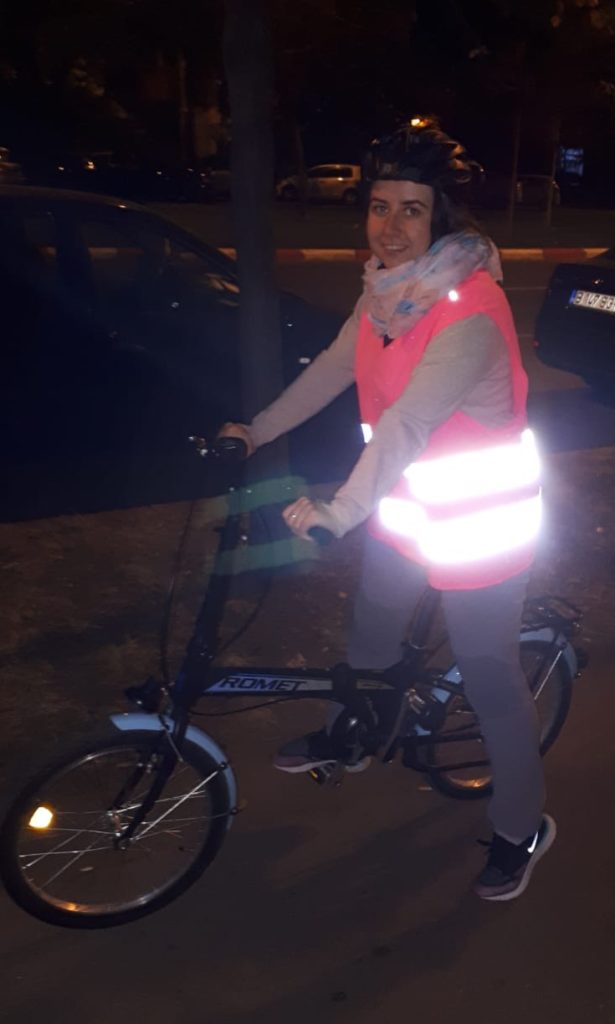
This September I celebrated my 30th birthday. I had a good time after the day of my actual birthday. But before that, it was somehow stressful.
I considered myself to be one for whom age is just a number. But there is something about this age which made me deeply reflect on society’s expectations of someone turning 30 and my actual accomplishments.
This particular birthday made me dwell on whether my choices are indeed the best for myself. Long story short, even though improvements can be made, I am living the life I want.
What kind of improvements? Hmm, lets see…
- I wish I’d focus more on finding people I admire professionally, so that I could learn more about their habits and what makes them successful in my eyes – I know a few and I do pay attention to their actions; however, I should pay more attention outward than I do now [when it’s mostly about me] and to research more.
- I wish I’d be more determined about my career, have clear goals to work towards – I do have some, but at the moment they seem so far-fetched that I don’t actually take the time to figure out where to begin working towards them.
- I wish I’d have more control over my time and to procrastinate less. I guess this is an issue I still struggle with – I am not sure which is the root cause of my procrastination, mostly because I actively avoid thinking about it.
All in all, there are mostly things about myself, the only one I can actually change, if needed [and it’s always needed]. I am quite ambitious and I do want to do things well. I put myself out there, I try new things and I fail on a daily basis. But that’s OK, as I thrive on learning new things, on being a student.
As a result, turning 30 was a pretext to evaluate my life thus far. The result of my evaluation: 3 top lessons I learned by 30 and how I apply them in real life.
Lesson 3: Knowing something and really knowing it are two different things!
There are more forms of knowing something. So far, I am differentiating between “superficial” knowledge, which is mostly cognitive and factual, and internalized knowledge, which is translates into emotions and behaviours.
I realised this during a walk home from work when I was stroke by the fact that in that day I learned a lesson I already knew. But there was something different about learning it this time. And I wonder about the difference: If I already knew about it, why did it feel there was a difference?
In the last couple of years, I had many epiphanies. Most of them meant knowing something I had already known, but at a deeper level. For instance: people are unique, while similar. OK, so? Well, it took me some time to understand that despite the similarities, people have different ways in which they react; they need to be approached in a personal, individual manner and there is no one solution fits all. So, yes, I knew this. But then, why did it strike me as new to learn that while being kind is interpreted by some as a strength, while others interpret it as weakness, or that while some thrive in a calm, peaceful, warm environment, others thrive in a conflicting one?
Another example: more important than the reality of a situation is how people perceive the respective reality. Is not what’s objectively real that will make people behave the way they do, but how they subjectively perceive the objective reality will influence behavior. There is a rule in Sociology to this matter and when I’ve learned it, there were countless examples I found to support it.
When in happens in daily life, however, when you see people describing a slightly different reality one wonders: do they lie on purpose? No, as it turns out, is what they actually understood and is what will influence their decision making and behavior.
How much sense does it make to correct their view and clarify? It depends on the situation, as, most of the time, it’s not the situation that is influencing the outcome, but people’s perception of it. The perception is determined by previous experiences and it may touch sensible cords, which is probably better to not be touched. My method: to propose alternative solutions, focusing on facts related to the situation – because it seems to be like this, then that.
It seems that, life will teach us some lessons over and over again. To really understand them, we need to go through more layers. What’s important to us will be learned after all. Or I hope it will.

Lesson 2: Best way to be happy? Stay present!
I learned this by looking back so much, I had no idea how I spent the previous couple of hours. At some point I realised that I take memories and interpret and re-interpret them so much that I change them to the point they made my present filled with unhappiness and regret. And while I spent my time rethinking what I said or what I did, people moved on with their lives. It took a while to accept that I made the best possible decision at the time and that, yes, it was to my best advantage.
I consoled myself with thinking that the respective decisions saved people from suffering and from making myself deeply miserable in the future. I learned my lessons and promised to pay attention and avoid doing the same in the future.
But in order to do that, I need to stay connected to myself in the present. To know what I think, to understand how I feel and why; to read and interpret the signals and adjust my behavior accordingly. And to enjoy what I actually live while I live it. Because this is the whole point of staying in the now: to live a life that feels rich and rewarding.
To me, being present means to feel my body in the moment, to observe my breath, to pay attention to my thinking process, to register the elements and people in my surroundings, to pay attention at one thing at a time. When I spot beauty, my sensations are heightened and I perceive gratefulness. In this state, my body feels at its best. It’s less often than I’d like, but when it happens, it’s what assures me of living a special moment.
It’s not easy to stay present though. It implies lots and lots of exercises to control your mind. It wonders. It goes back to more or less beautiful moments or toward the incertitude of tomorrow.
To me, the habit of maintaining myself in the present [though yet in progress to be mastered], keeps me going through difficult times and supports a good quality of life.
Thinking of past mistakes and continuously wondering about the future lead me nowhere good so far: there’s nothing I can change from what has already happened and the future directions of my life are pretty much determined by the efforts I put in right now.
So, no matter how I looked at this, being present is key.

Lesson 1: Movement is life!
Now, this is the most practical thing I’ve learned thus far. I watched life leaving the body of my grandmother, which was emotionally painful to witness, and I became overwhelmed by stress when I gave up sports in order to have “more time” for work, which was physically painful do experience. And as I pointed out in this post, I learned the importance of sports in my life the hard way.
I got to a point where spending all day in bed or at my desk, no matter how comfortable, are the death of me. I can only be energetic and happy [or just fine] if I move. If I take walking breaks, if I jump, if I walk, if I move, if I bike or if I swim.
Some things will never be easy: running, lifting weights, swimming, biking, taking long walks. That doesn’t mean they are not good for the body and mind. Doing difficult things is part of life. Movement is change and they are both part of life.
Easy or not, this is just a matter of perception. Keeping up with life implies doing some effort, taking one step at the time, using the mind to find solutions to concrete problems, being outdoors, facing facts, moving forward.
I don’t mean that one is to always keep busy and keep moving around, not at all. What I mean is that moving the body should be part of the daily routine, like brushing the teeth, taking a shower or getting dressed.
I struggle with my brain constantly as she has a bias towards relaxation. She adores easy activities like getting coffee with my friends in a pub, watching endless television, washing the dishes, listening to podcasts, taking a shower and reading books. All of these help me in crucial ways to making my life better.
But they simply don’t provide the reward I need and which I feel after taking a long walk, running for 30 minutes, keeping up with 45 minutes of cycling class or producing energy on the hybrid elliptic-bicycle for an equal number of minutes [or more, but I am not yet there] as the time invested in producing it.
I include movement in my daily life with intention: I pay for gym membership, gym clothing, gym accessories, entry fees related to doing sports; a significant part of my income is directed toward it because it is super important to me. [Books, knowledge and science are important to me as well, so I make investments in this area too. Eating out? Not important, so I cut the budget for this].
If it’s important to you, throw time and money in that direction. How else do you prove to yourself that it matters, when no investment in that direction is made?
I do free things as well [although nothing is free, another lesson I learned] I walk to work or from work even if it takes 75 minutes [it’s not that much, driving in that traffic takes 65 minutes], I guard my gym-days by not making any appointments at that time [including saying no to my friends], I use the weekends to clean the house [great exercise] and be outside, in the park; I take long walks with the boyfriend in the neighbourhood using the time to talk about frustrations [mine] and about how could things be different in Romania.
My experience so far made me realise that not having the time for it could as well mean I don’t have time to be healthy, happy and productive.
Now I am about to have breakfast and go out for a walk. So, lets make the day count!
